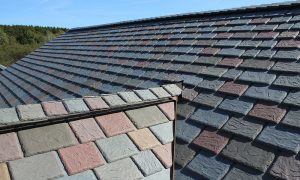Understanding Property Value: What Influences Home Prices?

The real estate market is complex and ever-changing, with property values influenced by a multitude of factors. For potential buyers and sellers, understanding these factors is crucial for making informed decisions. Whether you’re looking at homes for sale in Lakewood Ranch or anywhere else, knowing what drives home prices can help you navigate the market more effectively.
Location
The old adage “location, location, location” holds true in real estate. The geographical location of a property significantly impacts its value. Homes in desirable locations—those with good schools, low crime rates, and proximity to amenities such as shopping, dining, and public transportation—tend to command higher prices. Additionally, properties with scenic views, waterfront access, or situated in quiet, well-maintained neighborhoods are often more valuable.
Economic Factors
The broader economy plays a critical role in determining property values. Economic indicators such as employment rates, wage levels, and overall economic growth influence buyers’ purchasing power. In a strong economy, with high employment and rising incomes, more people can afford to buy homes, driving up demand and prices. Conversely, during economic downturns, property values may stagnate or decline as demand decreases.
Supply and Demand
The balance between supply and demand in the housing market is a fundamental factor affecting home prices. When the demand for homes exceeds the supply, prices tend to rise. This scenario often occurs in growing cities or popular neighborhoods where new construction can’t keep pace with the influx of buyers. On the other hand, an oversupply of homes can lead to lower prices, as sellers compete to attract buyers.
Interest Rates
Mortgage interest rates have a direct impact on home affordability and, consequently, property values. Lower interest rates make borrowing cheaper, enabling more people to afford higher-priced homes. This increased demand can drive up prices. Conversely, higher interest rates can reduce buyers’ purchasing power, leading to lower demand and stabilizing or decreasing home prices.
Property Condition and Upgrades
The condition of a property and any upgrades or renovations it has undergone can significantly influence its value. Homes that are well-maintained and feature modern amenities are more attractive to buyers and can command higher prices. Upgrades such as updated kitchens and bathrooms, new roofing, energy-efficient windows, and landscaping improvements can add considerable value to a home.
Neighborhood Development and Infrastructure
Ongoing and planned developments in a neighborhood can boost property values. New infrastructure projects like roads, public transit, parks, and schools enhance the appeal of an area. Commercial development, such as new shopping centers, restaurants, and entertainment venues, can also increase demand for homes in the vicinity, driving up prices.
Market Trends and Buyer Preferences
Trends in the real estate market and changing buyer preferences can influence property values. For example, there has been a growing preference for homes with energy-efficient features and smart home technology. Properties that cater to these trends often see higher demand and increased values. Additionally, market trends such as the popularity of urban living versus suburban living can shift demand and affect prices accordingly.







